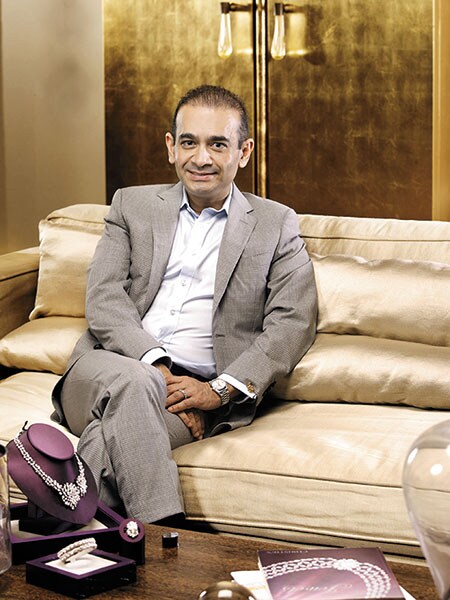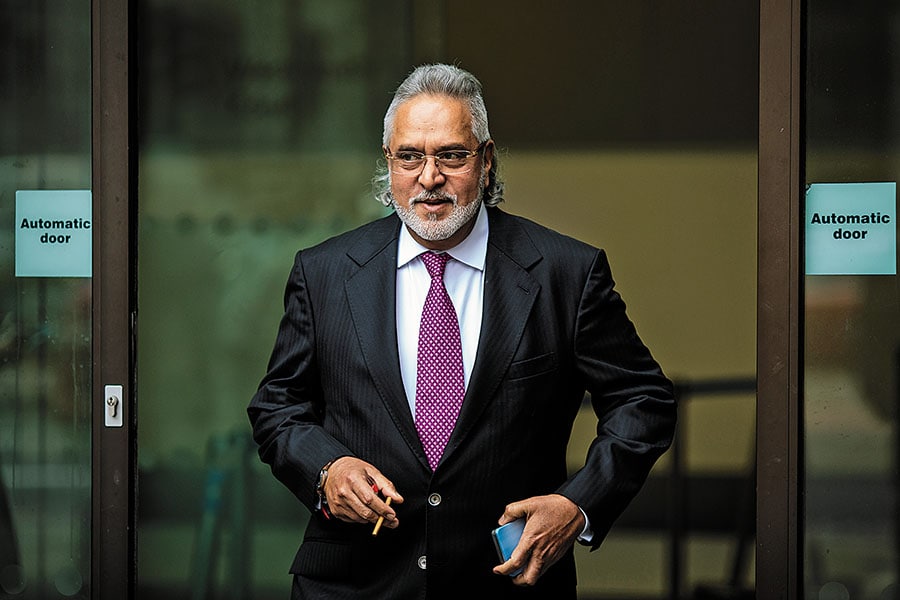India's most wanted
A special court in Mumbai is seeking to declare both Mallya and Modi fugitive economic offenders


 Nirav Modi
Nirav Modi
Not long ago, third-generation diamond jeweller Nirav Modi’s glittering creations were being flaunted by celebrities such as Kate Winslet and Viola Davis. Modi is the most notable dropoff from this year’s top 100. The jeweller’s diamond empire crumbled this year when he was accused of defrauding state-owned Punjab National Bank to the tune of $2 billion, a charge he denies.
Modi left the country before the scandal became public and an arrest warrant issued. After several rumoured sightings in various countries, Modi is reportedly now in the UK, where the Indian government is seeking his extradition.  Vijay Mallya
Vijay Mallya
Image: Jack Taylor / Getty Images Former billionaire Vijay Mallya, who owes Indian banks around $1.4 billion for loans to his now-defunct Kingfisher Airlines, is embroiled in extradition proceedings in a London court. The liquor baron left for the UK in March 2016, before the banks could close in on him. Mallya issued a statement in June bemoaning the fact that he’d become the “poster boy” for bank default and “a lightning rod of public anger”. He added, “I have made and continue to make every effort, in good faith to settle with the public sector banks.” The London court says it will make its extradition decision on December 10.
Embarrassed by these scandals, the Narendra Modi-led government passed a law in July targeting the likes of Mallya and Modi (no relation to the PM). Under the Fugitive Economic Offenders Act, anyone labeled an economic offender risks having his assets, in India and overseas, confiscated and sold off to clear his debts. The law applies to cases where the fraud amounts to more than $14 million.
To view the full India"s 100 Richest 2018 list, click here
Meanwhile, a special court in Mumbai is seeking to declare both Mallya and Modi fugitive economic offenders. The Central Bureau of Investigation and the Enforcement Directorate are looking to bring back 26 others under the new law, including six women. (None feature in the top 100.)
While the well-off in India have enjoyed a certain immunity in the past, they were spooked by the 2014 arrest of well-connected businessman Subrata Roy of the Sahara India Pariwar, a group with interests in financial services, education, hospitality and property. Roy got into a tangle with the stock market regulator for allegedly raising money by issuing debentures without its approval and was ordered to refund thousands of small investors. Roy, who once owned the Plaza Hotel in New York and has denied any wrongdoing, was jailed for two years until 2016 for contempt of court. He is now on interim bail and claims that 95 percent of the debenture holders have been repaid.
Zulfiquar Memon, managing partner at Mumbai law firm MZM Legal, which specialises in defending those charged with white-collar crimes, commends the government for introducing the tough, new law but says he isn’t certain how effective it’ll be. “The power to seize assets unilaterally could provide the accused with their best defence, that it is an unfair and biased legal system.” Modi and Mallya are probably counting on that.
First Published: Nov 14, 2018, 12:31
Subscribe Now